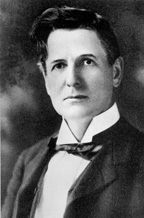The definition of international law centers on the word “inter,” which means “between,” as opposed to “intra,” which means “within.” So, literally, “international law” is defined as “law between nations (States),” which stem from agreements, embodied in a treaty, or customs that is recognized by all nations. According to Article 38 of the Statute of the International Court of Justice, sources of international law, in order of precedence, are: (a) international conventions (treaties); (b) international custom, as evidence of a general practice accepted as law; (c) the general principles of law recognized by civilized nations; and (d) judicial decision and the teachings of the most highly qualified publicists of the various nations.
National law, which is often referred to as domestic law, are those laws that exist “within” a particular nation (State). National laws are also recognized as the expression of the State itself, since it emanates from the local authority, which could be the law making institution, such as the United States Congress or the French Parliament. In some States, called States with a common law tradition, laws could also come from decisions made by judges, which is also called case law. Other States, called States with a civil law tradition, do not recognize judge made law, but only laws enacted by the legislature.
In 1936, the United States Supreme Court explained the difference between the two laws. In particular, the case centered on a joint resolution passed by the Congress on May 28, 1934, that prohibited the sale of arms and munitions of war in the United States to Bolivia, and a proclamation by the President on the same day that established an embargo in order to carry out the joint resolution. The defendant, Curtiss-Wright Export Corporation, was indicted for violating the joint resolution.
In United States v. Curtiss-Wright Export Corporation, the defendant was alleged to have sold fifteen machine guns headed to Bolivia in violation of the joint resolution. Federal legislation includes bills and joint resolutions that are signed by the United States President and made into law. As part of its decision, the Supreme Court needed to distinguish between the joint resolution, being a Congressional law, and the power of the President under international law. The Supreme Court stated, “Neither the Constitution nor the laws passed in pursuance of it have any force in foreign territory unless in respect of our own citizens, and operations of the nation in such territory must be governed by treaties, international understandings and compacts, and the principles of international law.”
In The Appollon, the Supreme Court also concluded, “The laws of no nation can justly extend beyond its own territories except so far as regards is own citizens. They can have no force to control the sovereignty or rights of any other nation within its own jurisdiction.” In other words, Congressional legislation has no effect beyond the territorial borders of the United States, but when the United States operates in a foreign State it is bound by international laws.
Legislation of every independent State, to include the United States Congress, is not a source of international law, but rather a source of national law of the State whose legislature enacted it. In The Lotus case, the international court stated, “Now the first and foremost restriction imposed by international law upon a State is that—failing the existence of a permissive rule to the contrary—it may not exercise its power in any form in the territory of another State [Lotus, PCIJ, ser. A no. 10, 18 (1927)].”
After two failed attempts to acquire Hawai‘i by a treaty, which is international law, from an insurgency established by the United States diplomat on January 17, 1893, and admitted by President Grover Cleveland to be unlawful, the United States Congress enacted a joint resolution “purporting” to annex the Hawaiian Islands on July 6, 1898, and President William McKinley signed it into United States law the following day. The President and Congress stated it was a military necessity to annex the Hawaiian Islands during the Spanish-American War in order to protect the west coast of the United States from foreign invasion.
The joint resolution was introduced as House Resolution no. 259 on May 4, 1898, after the Senate could not garner enough votes to ratify a so-called treaty of annexation. During the debate in the Senate, a list of Senators rebuked the theory that a joint resolution has the effect of annexing a foreign territory.
 Senator Augustus Bacon, stated, “The proposition which I propose to discuss is that a measure which provides for the annexation of foreign territory is necessarily, essentially, the subject matter of a treaty, and that the assumption of the House of Representatives in the passage of the bill and the proposition on the part of the Foreign Relations Committee that the Senate shall pass the bill, is utterly without warrant in the Constitution [31 Cong. Rec. 6145 (June 20, 1898)].”
Senator Augustus Bacon, stated, “The proposition which I propose to discuss is that a measure which provides for the annexation of foreign territory is necessarily, essentially, the subject matter of a treaty, and that the assumption of the House of Representatives in the passage of the bill and the proposition on the part of the Foreign Relations Committee that the Senate shall pass the bill, is utterly without warrant in the Constitution [31 Cong. Rec. 6145 (June 20, 1898)].”
 Senator William Allen stated, “A Joint Resolution if passed becomes a statute law. It has no other or greater force. It is the same as if it would be if it were entitled ‘an act’ instead of ‘A Joint Resolution.’ That is its legal classification. It is therefore impossible for the Government of the United States to reach across its boundary into the dominion of another government and annex that government or persons or property therein. But the United States may do so under the treaty making power [31 Cong. Rec. 6636 (July 4, 1898)].”
Senator William Allen stated, “A Joint Resolution if passed becomes a statute law. It has no other or greater force. It is the same as if it would be if it were entitled ‘an act’ instead of ‘A Joint Resolution.’ That is its legal classification. It is therefore impossible for the Government of the United States to reach across its boundary into the dominion of another government and annex that government or persons or property therein. But the United States may do so under the treaty making power [31 Cong. Rec. 6636 (July 4, 1898)].”
 Senator Thomas Turley stated, “The Joint Resolution itself, it is admitted, amounts to nothing so far as carrying any effective force is concerned. It does not bring that country within our boundaries. It does not consummate itself [31 Cong. Rec. 6339 (June 25, 1898)].”
Senator Thomas Turley stated, “The Joint Resolution itself, it is admitted, amounts to nothing so far as carrying any effective force is concerned. It does not bring that country within our boundaries. It does not consummate itself [31 Cong. Rec. 6339 (June 25, 1898)].”
In a speech in the Senate where the Senators knew that the 1897 treaty was not ratified, Senator Stephen White stated, “Will anyone  speak to me of a ‘treaty’ when we are confronted with a mere proposition negotiated between the plenipotentiaries of two
speak to me of a ‘treaty’ when we are confronted with a mere proposition negotiated between the plenipotentiaries of two
countries and ungratified by a tribunal—this Senate—whose concurrence is necessary? There is no treaty; no one can reasonably aver that there is a treaty. No treaty can exist unless it has attached to it not merely acquiescence of those from whom it emanates as a proposal. It must be accepted—joined in by the other party. This has not been done. There is therefore, no treaty [31 Cong. Rec. Appendix, 591 (June 21, 1898)].”
Senator Allen also rebuked that the joint resolution was a contract or agreement with the so-called Republic of Hawai‘i. He stated, “Whenever it becomes necessary to enter into any sort of compact or agreement with a foreign power, we cannot proceed by legislation to make that contract [31 Cong. Rec. 6636 (July 4, 1898)].”
According to Westel Willoughby, a United States constitutional scholar, “The constitutionality of the annexation of Hawaii, by a simple legislative act, was strenuously contested at the time both in Congress and by the press. The right to annex by treaty was not denied, but it was denied that this might be done by a simple legislative act…Only by means of treaties, it was asserted, can the relations between States be governed, for a legislative act is necessarily without extraterritorial force—confined in its operation to the territory of the State by whose legislature it is enacted.”
Ninety years later, in 1988, the United States Attorney General reviewed these Congressional records and in a legal opinion stated, “Notwithstanding these constitutional objections, Congress approved the joint resolution and President McKinley signed the measure in 1898. Nevertheless, whether this action demonstrates the constitutional power of Congress to acquire territory is certainly questionable.” The Attorney General then concluded, “It is therefore unclear which constitutional power Congress exercised when it acquired Hawaii by joint resolution.”
Hawai‘i was never a part of the United States, and has been under an illegal and prolonged occupation since the Spanish-American War.

Mahalo ia keia hoomoakaka ana. Ke aloha no.
I’ve been following the Aha on Olelo, channel 53 via Olelo on demand. An expert speaker was brought in to help the delegates understand international law, Her name is Catherine Iorns Magallanes, Law Professor at Victoria University of Wellington in New Zealand.
Aha Moderator Linda Colburn read a list of publications and articles that Magallanes has written on many subjects covering international law as well as some of her educational credentials that include, Yale Law School, 1991, Administer to the New Zealand Bar, 1989, Victoria University of Wellington, 1988.
Magallanes admits to not knowing the history of Hawaii, but also states that she does know the law.
It puzzles me to hear someone speak to the delegates about “International Law and Native Hawaiian Self-Determination” where she’s supposed to be an expert in international Law, but she is clueless in my uneducated opinion, when she explains to the delegates, how de-occupation is not possible, because in her educated opinion in international law, Hawaii was never occupied in 1893 and has never been.
According to Dr. Sai the occupation began in 1898 when the U.S. passed the illegal joint resolution annexing Hawaii.
Magallanes also lists the many reasons why an occupation could not have happen because of how international law was understood in the late 1800’s in comparison to international law after 1947.
If I’m wrong in my understanding about when the occupation began and what I’ve come to believe as our country being under prolonged occupation, can someone help me understand this as I’m confused after listening to Magallanes’ explanation on international law in 1893.
A Hui Hou,
kuniole
Aloha kuniole, what segment of the series is the speaker introduced? I would like to view it without having to watch the whole show.
My apology for the wrong channel, it is channel 52, Olelo on demand. The date is 2/3/16 with the speakers name “Catherine Magallanes” as the heading.
A Hui Hou
Aloha kuniole, I haven’t seen the show yet but would just like to say the Aha is pro-FEDREC and would only hire a speaker that would support their position. There are other international lawyers and professors that say Hawaii is occupied and that FEDREC is an inappropriate remedy. Regardless on the view of occupation, I would have hoped a participant would have asked the most obvious question to an attorney at the aha. Is there legal recourse within U.S. law that could defeat a similar challenge which caused the U.S. Supreme Court to issue an injunction against the ballots being counted. If they don’t have an answer for another legal challenge then they are just spinning their wheels and wasting Trust money.
I remember posting a comment months ago that Nai’ aupuni would not survive a U.S. Constitutional challenge.
OHA has spent a least 20 million dollars in their quest for FEDREC, starting with the Akaka bill, kau inoa, kanaioluwalu and now Nai’ aupuni.. They have failed every time. Obviously they haven’t figured it out since Rice vs. Cayetano.
Without a clear plan on defeating another legal challenge the aha is pointless.
Because of the injunction, you got Non-elected participants (not delegates), drafting a governing document that will not be used even if they could elect delegates in the future. The document would be in front of a new body consisting of different individuals that had no in put into this document at all. It seems like an expensive work shop paid for with Trust money.
Mahalo Kekoa for your response, I think I kind of knew that, but needed to hear it from others that are seeing it in the same way as I do.
Again, Mahalo for your mana’o, it’s always good reading your input.
A Hui Hou
Aloha kuniole, mahalo for the Olelo TV information.
What is the consequences of us kanaka(s) renouncing our social security number as “american citizens”. Can we/I do it ? Or do we wait for deoccupation? If such thing is do able, tell me how can it be done?
It would definitely make it difficult for you to function and survive the occupation. I don’t see the benefit in doing something like that before the occupation ends. You have to understand that surviving is the key in occupation. When it ends you are still eligible for the benefits of that private contract because you invested into it. There are many non-U.S. citizens that worked in the U.S. and entered into that contract and paid into that system. Upon retiring they moved back to their home country and are collecting their S.S. checks. You have to see the pro’s and con’s before making a decision but it is yours to make.
Mahalo for elaborating much more on this subject. I cannot wait for this occupation to start coming to end. I’m tired of getting upset and frustrated not only because of this occupation in general, but the way we have to live under this occupation. For my part, I’m doing as much as I can with discretion to try to educate not only myself, but other people around me. I just honestly cannot wait for this war to end so we can finally enjoy the freedoms and privileges Hawaii itself and its people have been deprived of for many generations. The U.S. military will establish a military government, enforce the 1907 Hague Regulations, the 1949 IV Geneva Convention, Additional Protocol I, customary international law, and Hawaiian Kingdom law. And the U.S. Government will not only honor the Executive Agreements, they will compensate all of us for this 120+ year occupation.
Aloha
Iolani
Mahalo for your mana’o Kekoa! Ame Mahalo H.K. Bloggers no ka oi!
Pingback: Basics Of Civil Law In Ukraine? – ejcl.org
Pingback: Somaliland Civil Law? – ejcl.org